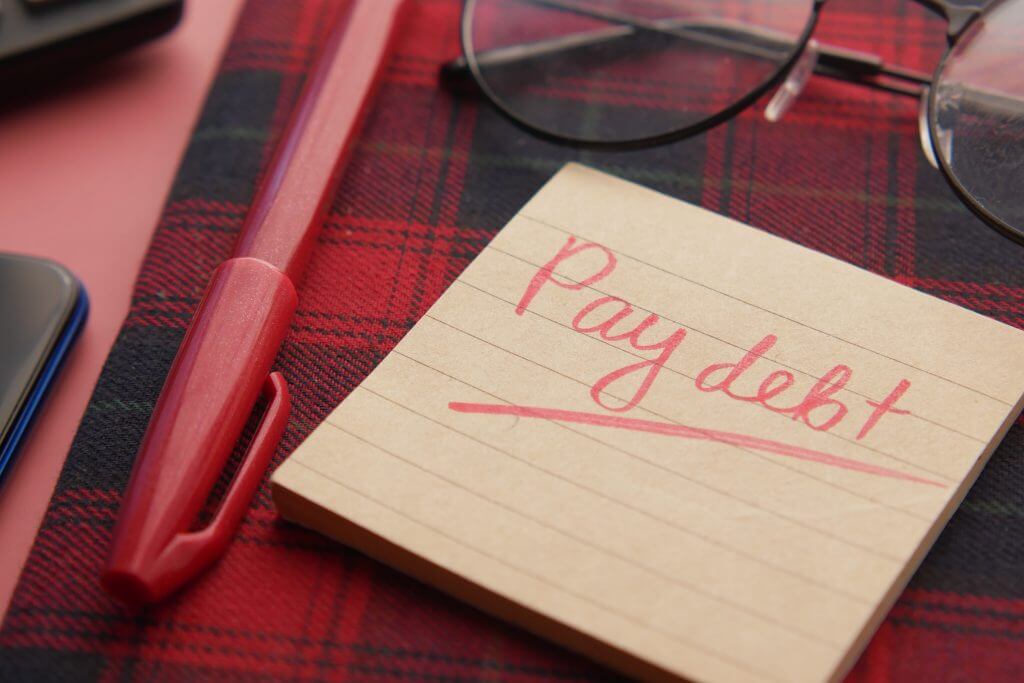
Trifecta to be Free from Debt
Debt is one of the most terrible things anybody can be saddled with. When there’s a lot of debts called in, you are expected to pay them fast, but when you decide to be more methodical, there are some ways to keep that burden off your back.
Causes of debt stress
Debt-induced stress is classified in the medical community as debt stress syndrome (DSS). A number of studies released over the years have tagged DSS as manifesting in certain situations:
Blood pressure
The tension from mounting debts may cause a borrower’s blood pressure to increase. One study in particular pinned men between 24 to 32 years old with high debt to asset ratios for this, as they may have sold much of their assets to pay the debt but it wasn’t enough to cover everything.
Depression and anxiety
Some studies focused on borrowers getting depressed or anxious at varied success in settling their debt obligations. One depression-related survey noted men at least 51 years old reporting symptoms of depression because they felt they could not control unsecured debts they have incurred. On the anxiety front, another study noted respondents having 11.7 per cent more stress levels than average because of nervousness and thinking of worst-case scenarios such as losing their home or being denied an advance application on account of low credit scores.
Lower immunity
Stress brought about by debt issues may affect the immune system. A number of doctors state that stress already triggers immune hormones such as adrenaline and cortisol; prolonged release hampers immune system functions and increases the body’s exposure to illnesses. The same also applies to lack of sleep, because it brings cortisol production to higher levels; common tropes of staying awake thinking of financial issues to settle are very much real.
Strained relationships
Mounting debts and an apparent inability to resolve them could snap at any relationships. A study published by a noted magazine on families indicated that married couples who argued about finance matters at least once a week carried a higher chance of filing for divorce within five years than others who argued over other issues. This may be true for situations such as, in the case of heterosexual couples, the male might not provide his female partner with enough money for the household.
3 debt repayment strategies
Avalanche
The avalanche method is primarily based on arraying all your debts and paying first those debts with the highest amount of interest. They can be itemised by amount, the schedule and amount of minimum payments, the interest rate, and the issuer. Some experts claim that when listing all your debts, credit-card debt should be at the top of the list, followed by student advances, auto advances, personal advances, any large bills and medical expenses.
The trick is to concentrate most of your payments into the debt with the highest interest. Once that is settled, you can focus on the debt with the second-highest interest, and so on. Do not forget to have enough money left over to make minimum payments on the other debts you still have. On your end, you can help allocate more money towards debt servicing through strategies such as cooking at home and bringing some to your work as lunch; your lunch money would be allotted to the debt.
Some may ask why are credit cards at the top of the avalanche payment list? Credit-card companies are noted for posting high interest on their products, which makes settling their debts of paramount priority. This is especially true when at least one credit card you have carries interest rates of nearly 30 per cent.
Snowball
The snowball method is seen as a reverse of the avalanche method. You list down all the debts you have as stated in above, but rank those with the smallest amount to pay at the top of the list, regardless of the interest rate. Take note that any existing mortgages should not be listed even if they have to be paid off.
The key is to pay the debts with the smallest amount first to better prepare you for the larger debts, even if they have more interest tied in.
Some finance experts prefer the snowball method against avalanche because when a debt item with high interest is paid like one credit card, the borrower can free up more money to cover the principal on the next debt item.
Mental Relief
A certain method called mental relief is designed towards relieving yourself of the emotions normally associated with debts. Much like the avalanche method, this method involves categorising the debts you have in the order of which mentally affects you the most and would provide you with the most relief once they are paid off. The objective now is to allot a major slice of your current funds to paying off the most distressing debt item in your list. Once this has been dealt with, you can then proceed to resolving the next item on the list.
Case study
James and Hannika (last names suppressed for privacy reasons), a live-in couple in Western Sydney, have spent years in a number of good-paying jobs, even right through the pandemic. However, they have amassed $80,000 in credit card debts, which included at least one high-interest credit card and taking out multiple cards on zero-interest offers. Their resulting mediocre credit scores later affected their chances to apply for a property advance on three occasions.
The UBOMI solution to be free from debt
Realising the dangerous situation they faced, the couple used UBOMI to reevaluate their finances. The app’s easy-to-use interface gave them an opportunity to account for all their expenses, by category and frequency, spread out over a period of time. UBOMI’s AI system became critical to the couple having an improved analysis of their spending patterns and savings plan, including mapping out any recurring payments.
Nobody wants to live their life with debts anchored to their feet. A little help from sound counselling and a finance app like UBOMI will keep your spending in check.
If you liked our “Trifecta to be Free from Debt” and find it useful, check our blogs regularly for more information on how to get out of debt and get updates on personal wealth apps in Australia.




